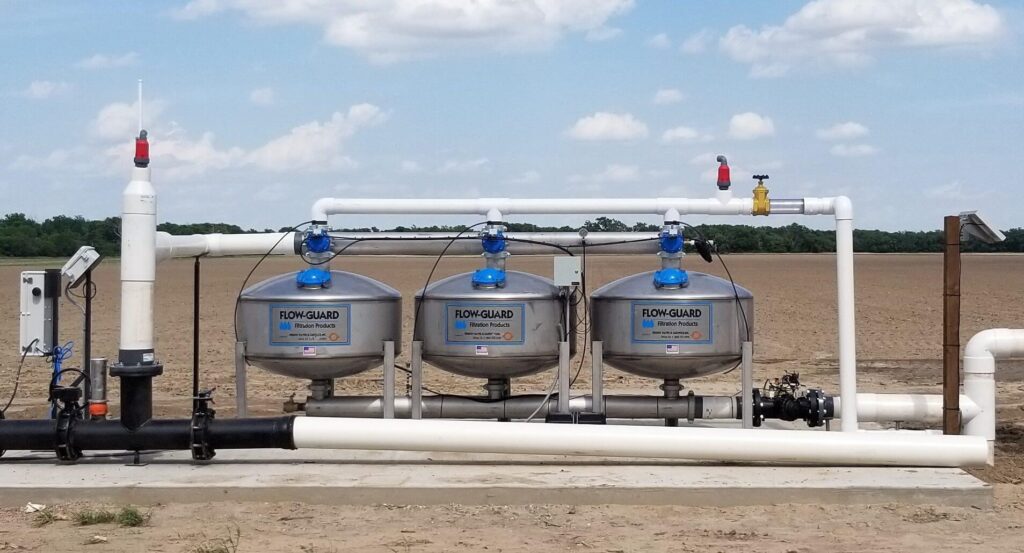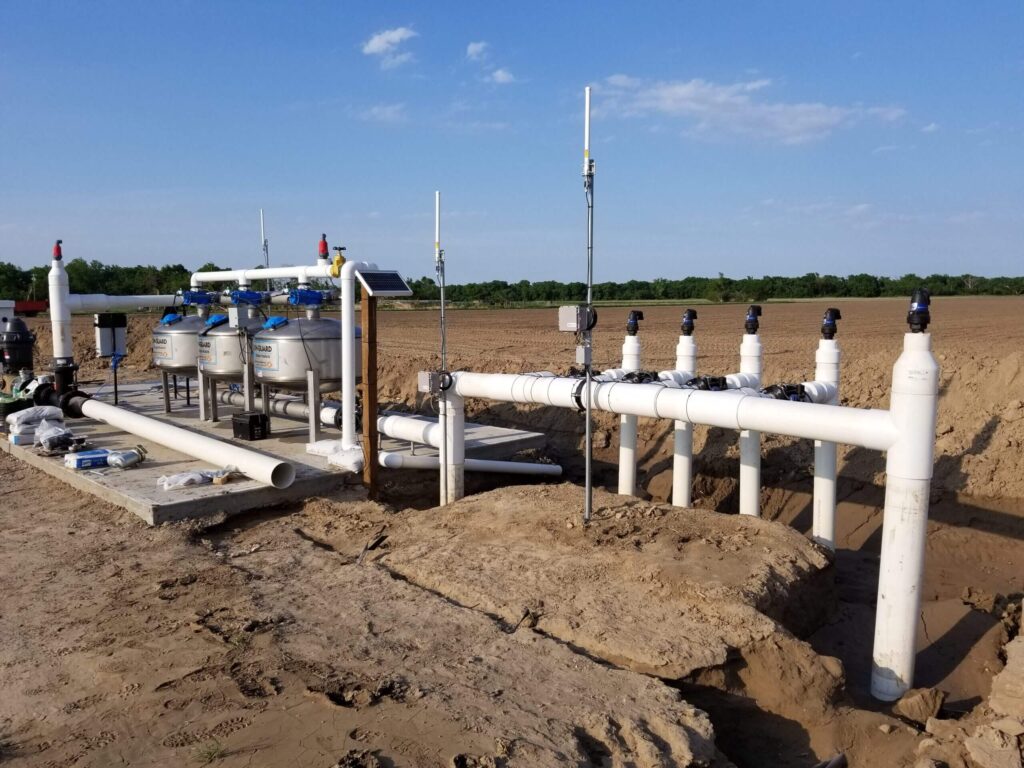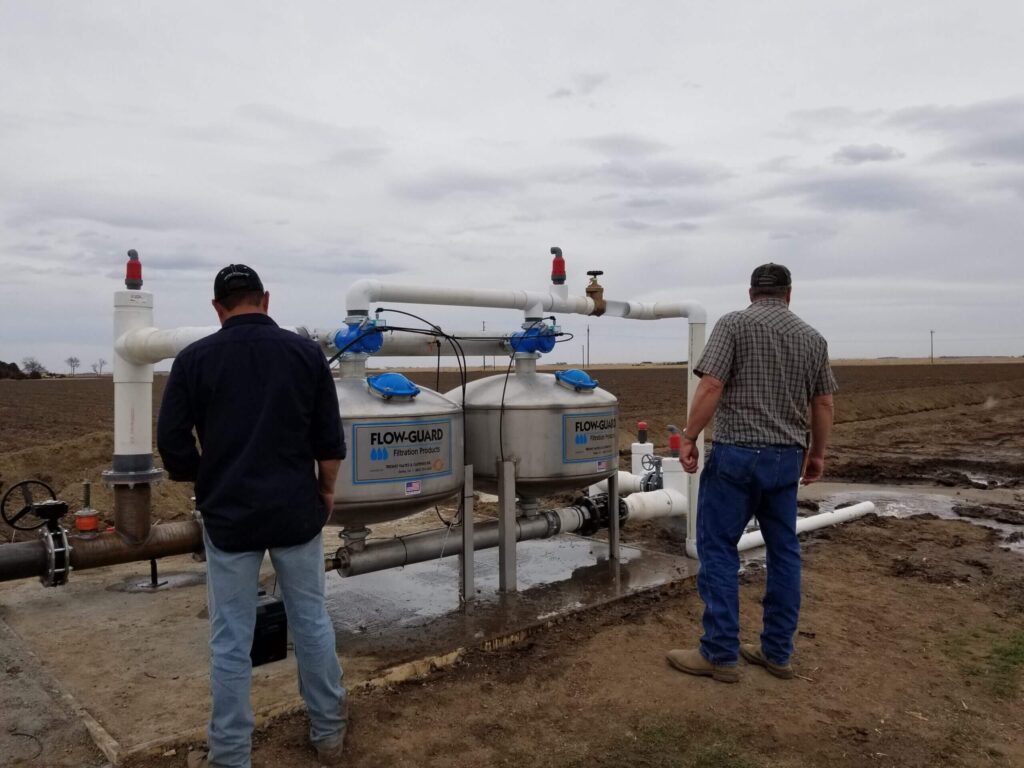How Irrigation Automation is Changing Modern Agriculture
How Irrigation Automation is Changing Modern Agriculture
The agriculture industry faces mounting challenges. Water scarcity has become a critical issue in many parts of the world, labor shortages have left farms understaffed, and rising global food demand strains existing resources. Traditional irrigation methods, while effective for many decades, are increasingly less sufficient to handle these evolving pressures. Crops are often overwatered or underwatered, leading to wasted resources and diminished yields. Farmers are also grappling with the rising costs of manual labor, which further eats into their profitability.
Enter irrigation automation—a groundbreaking technological solution designed to tackle these problems head-on. By combining advanced technologies like sensors, artificial intelligence (AI), and Internet of Things (IoT) devices, automated irrigation systems promise precise, efficient water usage, optimized crop growth, and significant labor cost savings. Western Irrigation, a proven leader in smart agriculture solutions, is at the forefront of this transformation, helping farmers worldwide adopt smarter, more sustainable irrigation practices.
This article explores the promise and potential of irrigation automation, ranging from its core technologies and benefits to its role in addressing water scarcity, boosting yields, and solving labor challenges.
What is Irrigation Automation?
Irrigation automation refers to the use of advanced technology to manage a farm’s watering schedule with minimal human intervention. These systems rely on sophisticated sensors, IoT networks, and AI algorithms to monitor environmental conditions such as soil moisture, weather patterns, and crop needs. Based on real-time data, the system adjusts water distribution automatically, ensuring that plants receive just the right amount of water, at the right time, and in the right areas.
Key Technologies in Automated Irrigation Systems
- Sensors: Sensors play a pivotal role in irrigation automation. Moisture sensors embedded in the soil continuously measure how much water is available. Weather sensors predict potential rainfall and temperature fluctuations, while flow meters track water usage to detect inefficiencies.
- Internet of Things (IoT): IoT networks connect devices like sensors and pumps, allowing them to communicate seamlessly. Farmers can monitor their irrigation systems remotely through apps or dashboards, gaining full visibility of their operation.
- Artificial Intelligence and Machine Learning: AI-powered algorithms analyze the data collected by sensors to make smarter irrigation decisions. Over time, machine learning models can predict a farm’s unique water needs, refining the system’s efficiency further.
Western Irrigation’s Integration of Advanced Technologies
Western Irrigation has embraced these cutting-edge technologies to create user-friendly, highly effective solutions for farmers. Their systems integrate AI-powered tools with robust IoT networks, offering farmers a tailored approach to irrigation. By simplifying the complexity of automated irrigation, Western Irrigation ensures that even smaller farms can benefit from this transformational technology.

Benefits of Automated Irrigation Systems
Water Conservation and Sustainability
Water scarcity is one of the most pressing global challenges, with agriculture accounting for 70% of all freshwater use worldwide. Automated irrigation systems help address this issue by significantly reducing water waste. Sensors provide real-time feedback on soil conditions, enabling systems to apply water only when and where it’s needed. This eliminates overwatering and ensures sustainable water use.
For example, Western Irrigation’s smart systems have helped farms reduce water consumption by up to 30% by tailoring irrigation schedules to crop needs and environmental factors. This not only conserves water but also supports ecological balance.
Labor Efficiency and Cost Savings
With traditional irrigation, labor-intensive tasks such as manual operation of pumps and valves burden farmers, especially during peak planting or harvesting seasons. Automation alleviates this issue by handling these tasks autonomously, allowing farmers to focus on other critical operations.
Western Irrigation’s systems offer remote monitoring and control options, reducing the need for on-site labor. This is particularly beneficial for large-scale farms, where managing irrigation across vast areas can be challenging. By automating routine tasks, farms can cut labor costs and streamline operations.
Enhanced Crop Health and Yield Optimization
Healthy crops require consistent and adequate watering — too little or too much can compromise their growth. Automated irrigation systems use precision techniques to deliver water based on the specific needs of each plant or section of a field. This precision improves root development, reduces disease caused by overwatering, and enhances nutrient absorption.
Western Irrigation’s precision irrigation solutions have been shown to improve crop yields by up to 20%. For instance, one of their client farms reported higher yields in drought-prone areas after adopting an automated system designed to maximize water use efficiency.
The Role of Data in Irrigation Automation
Data is at the core of automated irrigation systems. Without reliable, real-time information from the field, even the most advanced technology would fail.
Data Collection and Analysis
Western Irrigation employs a network of highly accurate sensors to gather data on key parameters like soil moisture, temperature, humidity, and nutrient levels. This information is fed into an AI-powered analytics platform that interprets patterns and makes informed decisions about water distribution.
Real-Time Adjustments
A defining feature of these systems is their ability to make real-time changes. For instance, if unexpected rainfall boosts soil moisture, the system immediately reduces or pauses water delivery to prevent waterlogging. Such adaptability ensures optimal water usage and healthier crops.

Addressing Water Scarcity with Automation
The global water crisis remains a significant threat to agriculture, especially in arid regions where water availability is increasingly unreliable. Automation provides a viable solution by maximizing every drop of water.
Case Studies of Water Efficiency
Western Irrigation has worked with farmers in drought-prone areas, helping them reduce water usage by significant margins. For example, in Australia’s Murray-Darling Basin, one farmer reported a 35% decrease in water use after upgrading to an automated irrigation system. Not only did these changes preserve precious water resources, but they also saved money on utility costs.
By expanding the adoption of such technologies, agriculture can continue to thrive even in areas most affected by water scarcity.
Improving Crop Yields Through Precision Irrigation
Agriculture isn’t one-size-fits-all. Different crops and regions have unique requirements, and irrigation automation system caters to this diversity with precision.
Customized Solutions for Diverse Needs
Western Irrigation develops tailored systems that meet the specific needs of crops and their environments. For example, rice paddies often demand intermittent flooding, while wheat fields perform best with a steady, consistent drip irrigation method.
By focusing on these unique crop requirements, automated irrigation solutions ensure the ideal balance between water conservation and agricultural productivity. This precision helps farmers sustainably adapt to diverse climate challenges while maximizing overall yields.
Overcoming Labor Shortages with Technology
The agriculture industry faces a growing labor crisis. Skilled farmworkers are increasingly difficult to find and retain, leading to higher costs and delayed operations. Automation offers a vital alternative.
Remote Monitoring and Control
Western Irrigation systems include simple interfaces for remote access, allowing farmers to monitor and control irrigation from anywhere. This reduces the need for a large onsite workforce and eliminates the risk of human error during tasks like pump activation or valve adjustments.
Reducing Manual Dependency
Without the burden of constant manual intervention, farms can operate efficiently with smaller, less specialized teams. Automation ensures that critical irrigation system installation processes are handled accurately, regardless of manpower availability.
The Future of Irrigation Automation
The agriculture landscape is constantly evolving, and so too is irrigation technology.
Emerging Trends
Western Irrigation is closely monitoring trends in AI, robotics, and advanced IoT. The next wave of smart systems will include fully autonomous irrigation robots capable of tending to multiple fields at once. AI systems will also become more predictive, recommending crop-specific watering and fertilization schedules based on decades of historical weather and growth data.
Aligning with Sustainability
Automation aligns perfectly with global efforts for sustainable farming. It minimizes resource consumption and promotes eco-friendly practices, ensuring agriculture can remain a viable industry in a rapidly changing world.
Western Irrigation’s Vision
Looking ahead, Western Irrigation aims to democratize access to these technologies, making them affordable and accessible to farms of all sizes. Their vision is a world where every farmer, from smallholders to large commercial operations, has the tools needed to maximize efficiency and profitability while protecting the environment.

Conclusion
The challenges facing agriculture—water scarcity, labor shortages, and increasing food demand—necessitate smarter, more adaptable solutions. Irrigation automation stands out as a game-changer, offering sustainable water use, improved productivity, and enhanced profitability. By adopting advanced tools like those offered by Western Irrigation, farmers can future-proof their operations and contribute to a more resilient global food supply chain.
Now is the time for farmers to take a bold step toward smarter farming. With technologies becoming more accessible and easier to implement, irrigation automation is no longer just an option; it’s a necessity for staying competitive and sustainable. Explore what Western Irrigation has to offer today and start your journey toward a brighter, smarter agricultural future.
